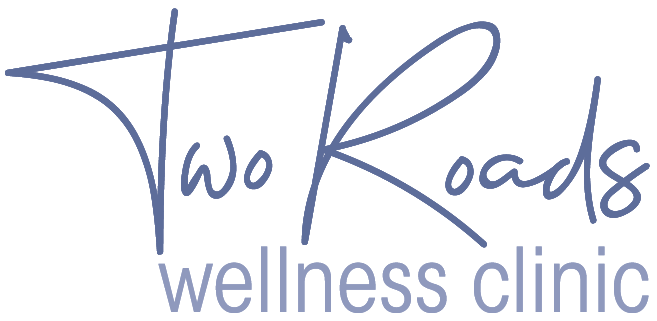Suicide Prevention: Building Empathy and Understanding
Content Warning: This article explores the topic of suicide deaths and the psychological pain that causes it.
National Suicide Prevention Month
September is National Suicide Prevention Month, and in honor of this event I would like to share some thoughts on how all of us can help reduce the frequency of this collective tragedy. First, I wish to acknowledge the incredible difficulty of this topic – especially for the many of us, myself included, who have personally lost loved ones to suicide. The weight of this issue can be overwhelming and painful. However, I truly believe the more openly we discuss suicide as a community, the less scary and daunting it will be.
According to the most recent statistics gathered by the American Association of Suicidology, 47,511 Americans died by suicide in 2019, making it the 10th leading cause of death. For young Americans ages 15-24, suicide is the 2nd leading cause of death.
Given its magnitude, there remains a surprising amount of silence in our society about suicide. However, I believe many of us do not know what to say about this problem, or fear talking about it will somehow make the problem worse. While these fears are understandable, research suggests that if we approach these conversations openly, without judgement, there will be overwhelmingly positive results. I truly believe one of the most powerful ways we can all help prevent suicide is to make it okay to talk about.
In the spirit of building a culture of openness, I think a good starting point is to increase our empathy and understanding for those who often suffer silently with suicidal thoughts and feelings. It can be difficult to fathom why so many of our friends and neighbors end their lives. However, if we take a closer look, I believe we all can better understand this tragic phenomenon.
What is psyche-ache?
Dr. Edwin Shneidman, clinical psychologist who founded the American Association of Suicidology in 1968, coined the phrase “psych-ache” to explain the cause of suicide. Psych-ache refers to the psychological pain that we all feel at times in our lives. Psych-ache has many causes – shame, trauma, loss, depression – and when this pain becomes too great, a person begins to feel hopeless and helpless. The pain feels insurmountable and the light at the end of the tunnel fades, leaving a person to perceive only an endless descent into darkness with no way out. If the pain is too much to take, and it truly feels like nothing will take that pain away, we can understand why a person begins to think about suicide as the only remaining way to make the pain stop.
The good news
However, there is good news. Psych-ache is almost always very treatable. We just need to determine the individual’s causes of psychological pain and what they need to alleviate the pain. Of course, psychotherapy and medication management for psychiatric illnesses are important options to reduce suffering. But another major way we can all help reduce our collective psych-ache is to build and foster our social connections.
Psychologist Dr. Thomas Joiner, in his book Why People Die by Suicide, highlights two common factors in suicide: “lack of belongingness” and “perceived burdensomeness.” Feeling disconnected and excluded from other people leads to psych-ache and a lack of support to address it. Also, many people who feel suicidal genuinely perceive themselves as burdening everyone around them with their struggles, and thus feel hesitant to reach out for help.
How to prevent suicide with empathy and understanding
In light of this understanding, what are some ways we can all contribute to suicide prevention? You don’t have to be an expert or mental health professional to help build a culture of support and empathy around suicide. Here are some basic tips we can all use to help prevent suicide:
Educate yourself on the topic. Learn the warning signs and tips for how to support others. Groups like the American Foundation for Suicide Prevention are a great resource.
Practice building empathy and being non-judgmental. This will help those struggling feel safer to open up and seek help.
Have open conversations about mental health with your friends and family.
Know local mental health resources and support others in seeking professional help
How to seek help for suicide prevention
If you or someone you know is experiencing suicidal thoughts, help is always available. Please reach out without delay. Below are some toll-free 24-hour crisis resources:
National Suicide Prevention Lifeline: 1-800-273-8255
Crisis Text Line: Text HOME to 741741
Champaign County Crisis Line: 217-359-4141
Vermillion County Crisis Line: 217-443-5566
Source: Suicidology Facts and Statistics
About Two Roads Wellness Clinic
At Two Roads Wellness Clinic, we want to help you find the path that makes a difference in your life. We’re an integrative health clinic offering a vast array of services including, mental health treatments such as EMDR (eye movement desensitization and reprocessing), expressive arts therapy, family therapy, medication management, primary care, integrative nutritional support including genetic nutritional counseling, life coaching, massage therapy, physical therapy, infrared sauna services, community education and outreach, and more.
The Two Roads Wellness Clinic team of therapists, medical and nutrition staff, massage therapists, life coaches, physical therapists, and emotional support animals are ready to help you find an integrated approach to your wellness. To schedule an appointment, visit our contact page, to get started at one of our convenient locations in Champaign, Danville, or Mahomet.

